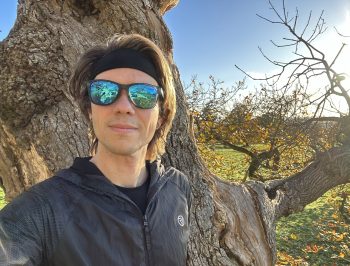
Vicky joined VWT in April 2024 as Species Conservation Officer for Ireland, focusing on the country's lesser horseshoe bats, Irish stoats, and pine martens. Since graduating in 2011 with a BSc (Hons) in Environmental Science, Vicky has undertaken several conservation roles with NGOs, academia and local governments. These roles have spanned the Caribbean, UK, Ireland, and a British Overseas Territory. Vicky’s positions have included work on habitat restoration projects, invasive species control and biosecurity projects, species recovery, protection and research, and public engagement campaigns. Vicky has extensive practical experience and has worked with many communities to overcome biodiversity challenges. Each community is unique, and Vicky enjoys finding effective ways to enthuse the public and keep them informed and involved. Vicky was lucky enough to grow up next to the Clwydian Range in North Wales, which was where her fascination for the environment developed. Being surrounded by diverse habitats and species at a young age instilled a deep connection with the natural world, which she loves to share with others. Vicky is now settled in beautiful west Cork, where she enjoys beach combing and snorkelling in her spare time. Office: County Cork, Ireland.

As Carnivore Programme Manager, Steve is responsible for VWTs portfolio of carnivore conservation projects and activities in line with the Trust’s Ten-year Strategy. Steve is a zoologist with a background in research on a number of mammal species, including water voles and badgers, and with a particular interest in the smaller carnivores. He has a PhD, from Royal Holloway University of London, on the impacts of introduced predators and their management for conservation. Prior to joining the Trust, Steve worked for many years as a wildlife biologist with the Animal and Plant Health Agency, managing projects on the development and deployment of TB vaccines for badgers. Steve holds a number of honorary positions including visiting lecturer, College of Life & Environmental Sciences, University of Exeter, member of IUCN Small Carnivore Specialist Group, The Mammal Society’s Scientific Advisory Committee and the Editorial Board of Mammal Communications. Steve joined the Trust in 2016. Office: Amberley, Gloucestershire.
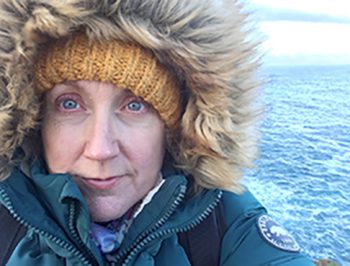
As Principal Scientist for VWT, Jenny oversees the design and implementation of the Trust’s research projects to ensure they are rigorous and of the highest scientific standard. Jenny is a zoologist with a background in research on a range of mammal species, including pine marten, dormice, red squirrel, water vole and mink. She gained an MSc in conservation at University College London and then went on to a PhD at Royal Holloway. She joined the Trust in 2011 as project officer on the Mammals in a Sustainable Environment (MISE) project, working with volunteers and local communities on surveys and conservation of a range of mammal species in west Wales. In 2014, Jenny became the Trust’s Pine Marten Project Manager, managing the Pine Marten Recovery Project for England and Wales and the reinforcement of pine martens in Wales. She became Principal Scientist (formerly Science and Research Programme Manager) in 2018.
Jenny holds a number of honorary positions including Visiting Fellow University of Exeter, Member of DEFRA Reintroductions Task Force , Associate Editor Ecological Solutions and Evidence , Review Editor (Human Wildlife Interaction) Frontiers in Conservation, Open University Human Research Ethics Committee external member, BIAZA Reintroductions Advisory Group member and member of IUCN Small Carnivore Specialist Group. Office: Maesllyn, Ceredigion.
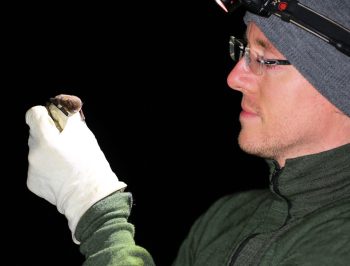
As Bat Programme Manager, Daniel leads the development and delivery of VWT’s Bat Programme in line with the Trust’s Ten-year Strategy. Daniel rescued his first bat when he was seven years old and has been fascinated by bats ever since. He has been involved with numerous global bat conservation projects, working with a wide range of species and helping to develop conservation initiatives in many countries, including Costa Rica, Thailand and Zambia. He was awarded the Pete Guest Award in 2012 for inspiring others and making an outstanding practical contribution to bat conservation. Daniel has also worked with many bat groups in the UK and developed the National Nathusius Pipistrelle Project to understand the migratory behaviour of this fascinating species. Daniel holds a number of honorary positions including membership of the UK Bat Steering Group, Eurobats, the Natur am Byth steering group, and the Pembrokeshire Barbastelle Working Group. Daniel joined the Trust in June 2022 Office: Burtle, Somerset.
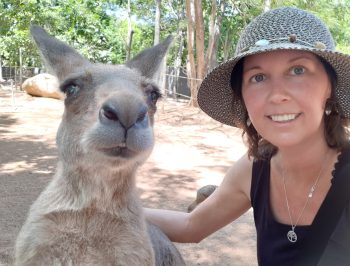
Following her role as Project Manager during the successful development phase of VWT's Martens on the Move project, Stephanie joined VWT in January 2024 as Project Manager for the four year delivery phase of the project, enabled by a further grant award from The National Lottery Heritage Fund. She has a background in conservation biology and endangered species management and over twenty years’ experience of working with landowners and volunteers to achieve landscape-scale conservation outcomes. Stephanie is from Australia where she undertook her undergraduate degree and PhD at the Australian School of Environmental Studies, Griffith University. Her PhD on the spotted-tailed quoll, a marsupial carnivore, was based in the Gondwana Rainforest World Heritage and the Darling Downs areas of the east coast and involved collaborations with Queensland and New South Wales Parks Services. Stephanie moved to Scotland from Australia in 2007 and has spent five years working as an ecological consultant and almost ten years working on red squirrel conservation, most recently with the Scottish Wildlife Trust on their Saving Scotland’s Red Squirrels project. Stephanie Is Chair of the Dumfries and Galloway Pine Marten Group and is interested in all things carnivore and landscape scale species recovery. Office: Dalbeattie, Dumfries and Galloway, Scotland.
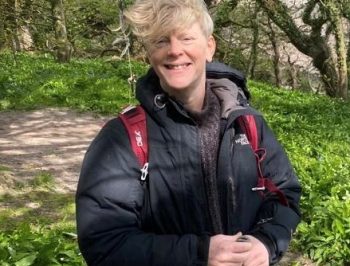
Victoria joined VWT in March 2024 as Project Officer with Martens on the Move. She will be working in the south of Scotland and north of England setting up a network of volunteers and training them in monitoring and surveying pine martens in Strategic Recovery Areas. Victoria comes to VWT from Saving Scotland’s Red Squirrels, where she was Project officer first in southwest Scotland and then the southeast. Supporting eighteen volunteer groups carrying out grey squirrel control to protect red squirrel populations, she trained them in monitoring and surveying using camera traps and feeder boxes, as well as identifying hair samples using a microscope. Before that Victoria honed her surveying skills as a freelance ecologist doing mainly bat and plant surveys across south Scotland. Victoria is Secretary of the Dumfries and Galloway Pine Marten Group where she can indulge in her passion for monitoring wildlife and getting out into the woods with like-minded people. In her spare time she is studying a Masters in Wildlife and Conservation Management and about to start her dissertation which may well involve pine martens and survey techniques. Office: Dumfries and Galloway, Scotland

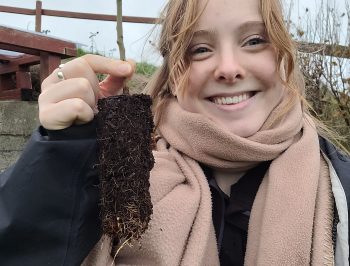
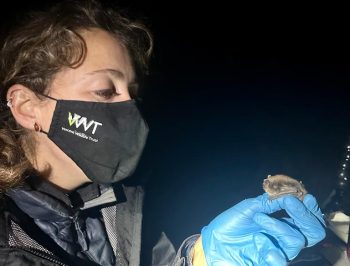
Marina joined the trust in 2018. As part of her role, she manages the Trust’s lesser horseshoe bat reserves in England and Wales, which includes monitoring the bat colonies, maintaining the roosts and enhancing them for the bats, all with the help of VWT volunteers. Marina also leads on the long-term ringing projects for Barbastelles and Bechstein’s bat in Malvern (Worcestershire) and Bracketts Coppice (Dorset). She also helps in the delivery of other bat projects. Marina completed a degree in Biology and a MSc in Biodiversity and Conservation at the University of Sevilla, Spain and has been involved in conservation projects within various taxa in Britain, Portugal, Peru and Spain. She joined Vincent Wildlife Trust after working as a research assistant for the University of Sevilla. Marina enjoys problem solving and working with volunteers, and feels privileged to work so closely to bats. Office: Ledbury.
